API 5L LSAW pipe (Longitudinal Submerged Arc Welded pipe) is a critical product used in the transmission of oil, natural gas, and water. As a type of steel line pipe, LSAW pipe is known for its high strength, reliability, and ability to withstand high pressure and corrosive environments. This article provides a complete overview of API 5L LSAW pipes, covering standards, chemical composition, mechanical properties, manufacturing processes, and testing methods.
What is API 5L LSAW Pipe?
LSAW (Longitudinal Submerged Arc Welded) pipe, also referred to as DSAW pipe (Double Submerged Arc Welded), is a tubular product manufactured with one or two longitudinal seams using submerged arc welding technology. The welding process ensures deep penetration, strong weld joints, and excellent mechanical properties, making LSAW pipes suitable for high-pressure and long-distance pipeline projects.These pipes are manufactured in accordance with the
API 5L and ISO 3183 standards, which define the technical delivery conditions for steel pipes used in pipeline transportation systems.
API 5L Specification Overview
API 5L standard classifies steel line pipe into two product specification levels:
PSL1 (Product Specification Level 1) – Basic requirements
PSL2 (Product Specification Level 2) – More stringent mechanical properties and chemical compositions
Available Grades
For LSAW pipes under API 5L, the following grades are commonly available:
PSL1: Gr. B
PSL2: Gr. BR, Gr. BN, Gr. BQ, Gr. BM
|
Specification
|
API 5L / ISO 3183 Hot Rolled .
|
|
API 5L Pipe Type
|
LSAW (Longitudinal Submerged Arc Welded Pipes)
|
|
Outer Diameter Size
|
12" NB To 150" NB (Nominal Bore Size)
|
|
Wall Thickness
|
Schedule 20 To Schedule XXS (Heavier On Request) Up to 250 mm Thickness
|
|
Length
|
5 To 7 Meters, 09 To 13 Meters, Single Random Length, Double Random Length And Customize Size.
|
|
Pipe Ends
|
Plain Ends / Beveled Ends / Coupling
|
|
Surface Coating
|
Epoxy Coating / Colour Paint Coating / 3LPE Coating.
|
|
Delivery Conditions
|
As Rolled, Normalizing Rolled, Thermomechanical Rolled / Formed, Normalizing Formed, Normalized and Tempered / Quenched and Tempered - BR / N / Q /T
|
|
Packaging
|
Loose / Bundle / Wooden Pallet / Wooden Box / Plastic Cloth Wraps / Plastic End Caps / Beveled Protector
|
|
API 5L LSAW X-Grades Pipe
|
API 5l X42 PSL1 LSAW Pipe, API 5l X42 PSL2 LSAW Pipe, API 5l X46 PSL1 LSAW Pipe, API 5l X46 PSL2 LSAW Pipe, API 5l X52 PSL 1 LSAW Pipe, API 5l X52 PSL 2 LSAW Pipe, API 5l X56 PSL1 LSAW Pipe, API 5l X56 PSL2 LSAW Pipe, API 5l X60 PSL-1 LSAW Pipe, API 5l X60 PSL-2 LSAW Pipe, API 5l X65 PSL1 LSAW Pipe, API 5l X65 PSL2 LSAW Pipe, API 5l X70 PSL 1 LSAW Pipe, API 5l X70 PSL 2 LSAW Pipe, API 5l X80 PSL-1 LSAW Pipe, API 5l X80 PSL-2 LSAW Pipe
|
Dimensional Range of LSAW Pipe
Outer Diameter: 219 mm – 1820 mm
Wall Thickness: 5.0 mm – 50 mm
Length: 6 meters – 18 meters
Pipe End Types: Square-cut (straight, saw cut, or torch cut), beveled ends for welding
These wide dimensional capabilities make LSAW pipes ideal for large-scale infrastructure and offshore pipeline systems.
Chemical Composition (API 5L Standard)
PSL1 – Grade B (L245)
|
Element
|
Max Content (%)
|
|
Carbon (C)
|
0.28
|
|
Manganese (Mn)
|
1.2
|
|
Phosphorus (P)
|
0.03
|
|
Sulfur (S)
|
0.03
|
PSL2 – Enhanced Chemical Control
|
Grade
|
C (%)
|
Si (%)
|
Mn (%)
|
P (%)
|
S (%)
|
Others
|
CE (Ceq/Cpcm)
|
|
BR / BN
|
0.24
|
0.4
|
1.2
|
0.025
|
0.025
|
-
|
CEhw 0.43 max / CEpcm 0.25 max
|
|
BQ
|
0.18
|
0.45
|
1.4
|
0.025
|
0.015
|
V/Nb/Ti ≤ 0.05/0.05/0.04
|
Same as above
|
|
BM
|
0.22
|
0.45
|
1.2
|
0.025
|
0.015
|
V/Nb/Ti ≤ 0.05/0.05/0.04
|
Same as above
|
Manufacturing Process of LSAW Pipes
LSAW pipe applied to diameters from 20 in (508 mm) to 40 in (1016 mm), LSAW pipe also named as JCOE pipe by manufacturing procedures, forms in J Shape – C Shape – O Shape and E Cold Expansion.
LSAW Welded Steel Line Pipe Manufacturing Flow :
Plate UT – Vacuum Lifting – Ultrasonic Inspection – Edge Milling – Pre Bending – Type J Forming – Type C Forming – Type O Forming – Tack Welding By CO2 Gas Shield Arc Welding – Tab Welding – Inside Welding – Outside Welding – Removal of Tab Plate – Cleaning – Rounding – X Test – Ultrasonic Testing – Washing Before Expansion – Mechanical Expansion – Washing After Expansion – Straightness – Hydrostatic Test – Ultrasonic Testing – Weld Grinding for Pipe Ends – Mechanical Facing – X Ray Test for Body and Both Ends – Ultrasonic Testing for Pipe Ends – Magnetic Particle Inspection For Both Ends – Weighing and Measuring Length – Product Inspection – Outside Coating – Inside Coating – Marking – Packing and Warehousing
1.Plate Preparation: Medium-thick plates (typically hot-rolled) are used.
2.Edge Milling: Precise milling of plate edges ensures perfect weld alignment.
3.Forming: Plates are cold-formed into U and then O shape using hydraulic presses.
4.Submerged Arc Welding (SAW): Both internal and external welds are made using automatic SAW to form the final longitudinal seam.
5.Heat Treatment: Depending on the required grade, normalization or quenching and tempering is applied.
6.Hydrostatic and NDT Testing: Pipes undergo multiple non-destructive tests to ensure safety.

Applications of API 5L LSAW Pipe
API 5L LSAW pipes are extensively used in:
Long-distance oil and gas pipelines
Offshore pipelines and subsea installations
Water supply and irrigation systems
Structural applications in construction and piling
Petrochemical and refinery industries
The ability to manufacture large-diameter, thick-wall pipes makes LSAW the preferred solution for high-pressure and high-volume transmission projects.
Conclusion
API 5L LSAW pipes are an essential component in the global pipeline infrastructure, offering unmatched durability, quality, and performance. With strict control over chemical composition, mechanical strength, and weld integrity, these pipes are designed to meet the toughest challenges in the energy and construction industries. Whether you're developing an oilfield in a remote location or building a cross-country gas pipeline, LSAW pipes compliant with API 5L offer a dependable and efficient solution.






 English
English Español
Español بالعربية
بالعربية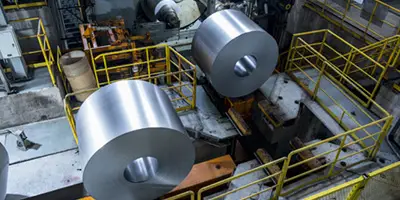
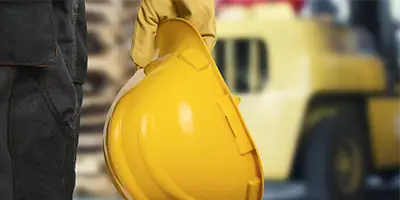
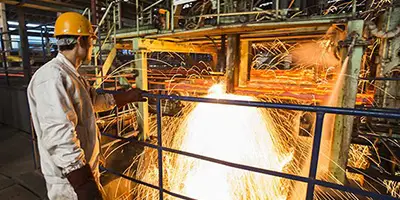
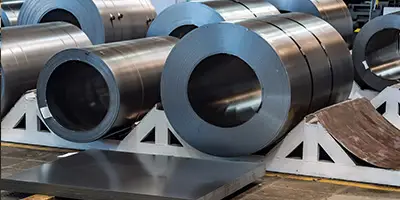

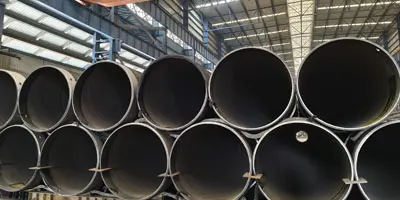
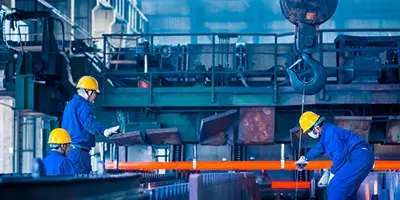
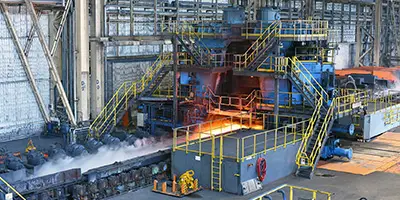
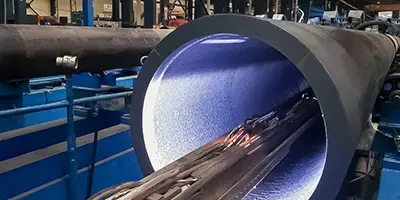
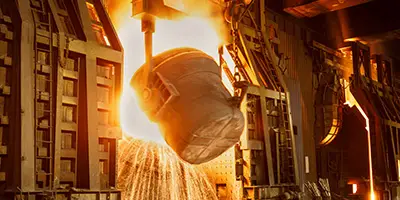
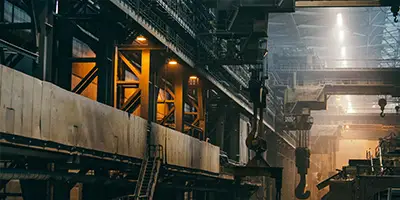

 Phone :
Phone :  Whatsapp :
Whatsapp :  Email :
Email : 


